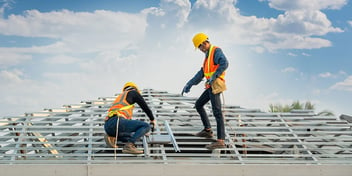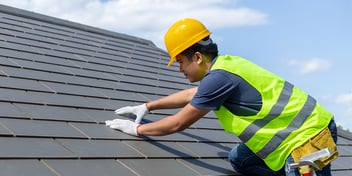- Home »
- Learningcenter »
- Void affect roof warranty
FAQ: What Things Can Void or Affect Your Roof Warranty?
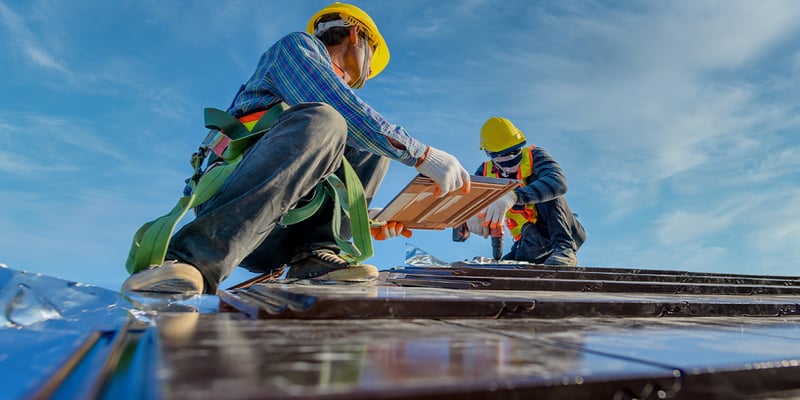
Unfortunately, many homeowners are away from the many limitations of roof warranties. This can mean that they aren’t protected in the way they expect they are, leaving them to face unwelcome news when they go to make a claim.
There are three main types of roof warranties: manufacturer’s warranties, workmanship warranties, and extended manufacturer’s warranties. The specific factors that will lead to a voided warranty will depend on the type of warranty in play and the contract’s fine print.
Luckily, you can avoid partially or completely voiding your warranty so long as you understand what is and isn’t allowed in the contract. For example, many workmanship warranties will be voided if another roofing contractor performs alterations or repairs after the initial installation. Once you’re armed with this information, you can avoid a voided warranty by sticking with the same company whenever you need roof work done.
Are you wondering what factors can leave you with a voided warranty? Let’s take a closer look at what you need to know.
What Can Impact or Void Your Roof Warranty?
Everything from improper installation to a lack of maintenance can mean you aren’t protected in the ways you expect under your roof warranties. The more you understand about factors that can void your warranties, the better you’ll be able to read through your contract and determine how best to maintain your roof, how to make alterations, and how to perform repairs.
Improper Installation
When it comes to manufacturer’s warranties for roofing materials, it’s worth understanding just how picky manufacturers can be regarding installation. They have very strict rules and regulations about things like the length of nails used, the number of nails per shingle, and so on.
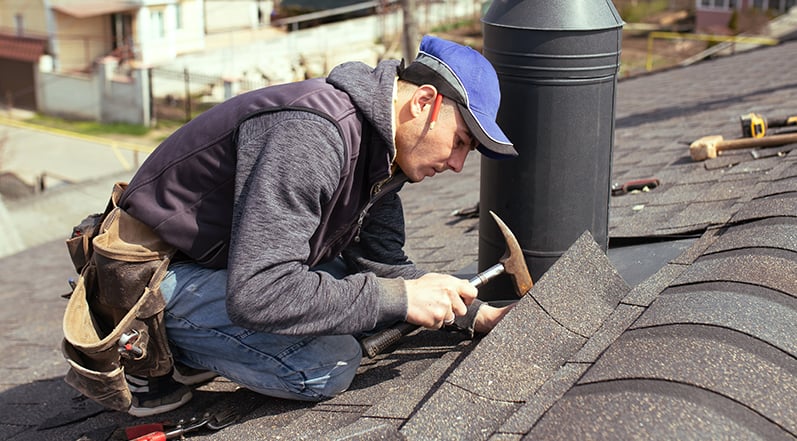
This isn’t necessarily a big deal if you choose a reputable professional roofing contractor, as they will make sure to follow all of the instructions outlined by the manufacturer of your roofing material. However, if you go with an inexperienced roofer, they could make mistakes that actually void your warranty. For this reason (and many others), it’s highly recommended to not just work with a skilled and knowledgeable roofer but one that has plenty of experience with the type of roofing system you’re installing.
Improper Roof Ventilation
Roof ventilation is important for ensuring that heat and moisture aren’t trapped in your attic. When this occurs, it can damage your decking and roofing system to the point of threatening the structural integrity. If you have a shingled roof, it can lead to your shingles fading and wearing away much more quickly than they would normally.
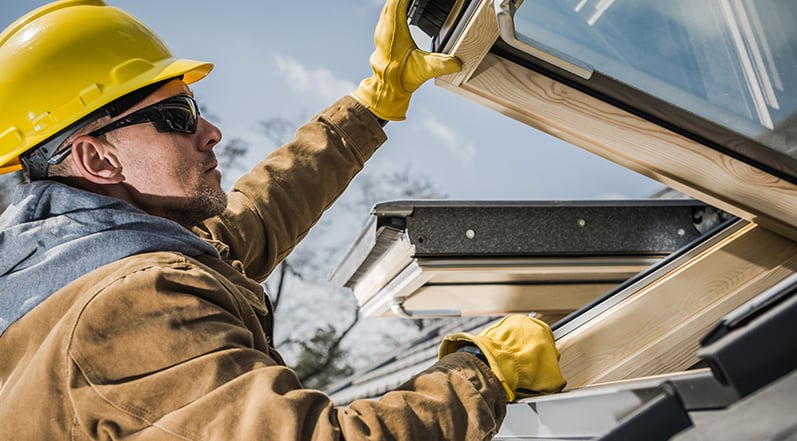
Therefore, it’s a good idea to regularly check in on your ventilation system and have it inspected periodically. This way, you can make sure that it is always in good working order.
Lack of Maintenance
In the fine print of your warranty, you’ll see that it is the homeowner’s responsibility to maintain their own roof in order to allow the roofing materials to work as intended. If a homeowner doesn’t properly maintain their roof, it can lead to a long list of problems that the warranty won’t cover.
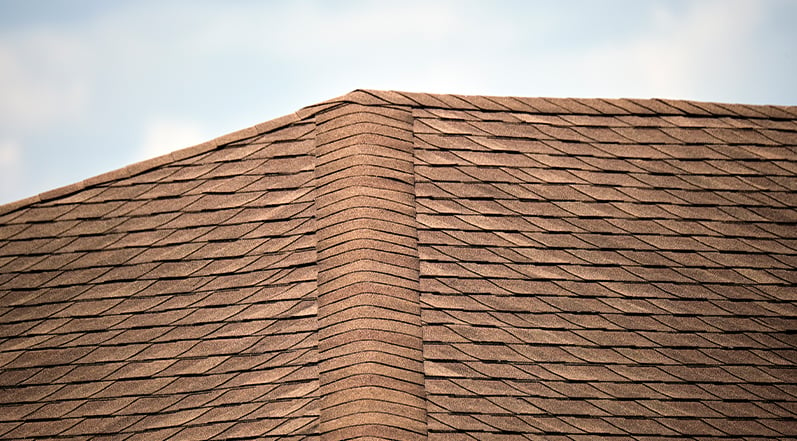
One good way to stay on top of maintenance is to sign up for a maintenance program offered by your roofer. What this includes can vary depending on the company, but it can help ensure that minor issues are caught early on before they become large, expensive problems.
Are you wondering what you should know about warranties attached to roof replacements? Check out our complete guide here.
Using a Different Contractor to Make Repairs
When you get a new roof installed, reputable roofing contractors will offer a workmanship warranty to stand behind their work and help you protect your investment. However, the warranty only covers their work, as they can’t speak for the quality of the work other contractors will do after the fact.
If you get more roof work done after your roof is installed and hire a different company, you are most likely voiding the workmanship warranty you received from the roofing company that did the initial installation.
When you think about it, this makes sense. The original company isn’t going to be willing to stand behind the workmanship of the installation when they know that another contractor has been up there making modifications, repairs, or doing other work. It becomes unclear whether the problem results from the original contractor or the second roofer.
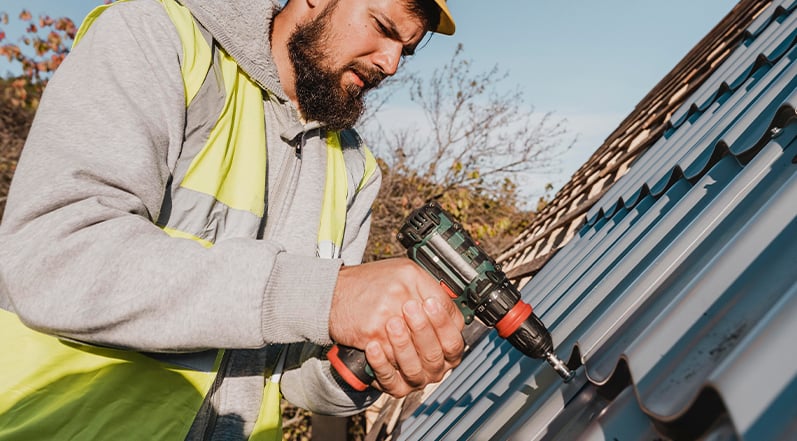
To set your mind at ease, it’s worth knowing that your entire workmanship warranty isn’t necessarily voided if you’ve had work done or added additions. In some cases, it might only void the warranty in the area where the work was performed.
The details of workmanship warranties can vary greatly depending on the contractor, though. It’s always a good idea to read the fine print before selecting your roofing contractor to ensure you understand how it could impact your warranty to have someone else perform work on your roof.
You can learn more about the warranty on roof repairs in this article.
Antennas and Satellite Dishes
Your roofing warranty can also be impacted by satellite dishes and their related antennas. Though damage related to these additions might not void your manufacturer’s warranty, it’s possible that they could void your workmanship warranty due to “mechanical damage.”
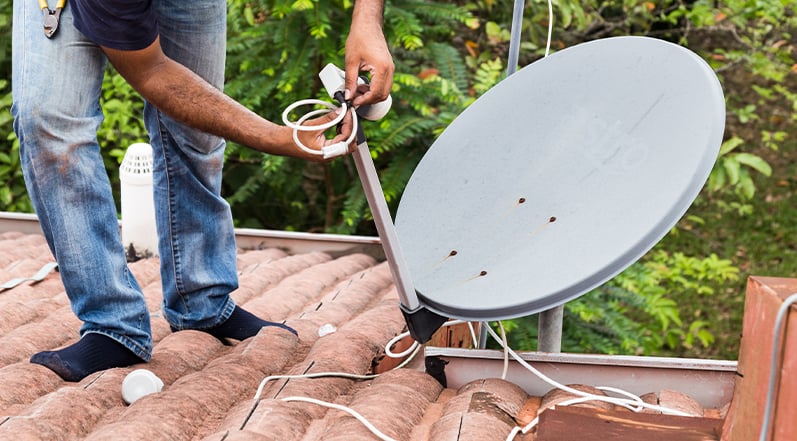
If you are considering installing a satellite dish, you’ll want to closely examine your warranties. When they aren’t installed properly, it can lead to leaks in your roof. Different manufacturers and workmanship warranties deal with this issue differently, so you’ll want to ensure you aren’t causing yourself trouble before installation.
Skylights
When you are installing any type of fixture that involves shingle removal, penetration, or major roof work, you can end up with a voided warranty. Skylights can be a wonderful addition to your home, allowing natural light to enter your living space and creating a lovely aesthetic in your home. However, they are also susceptible to leaks and other issues.
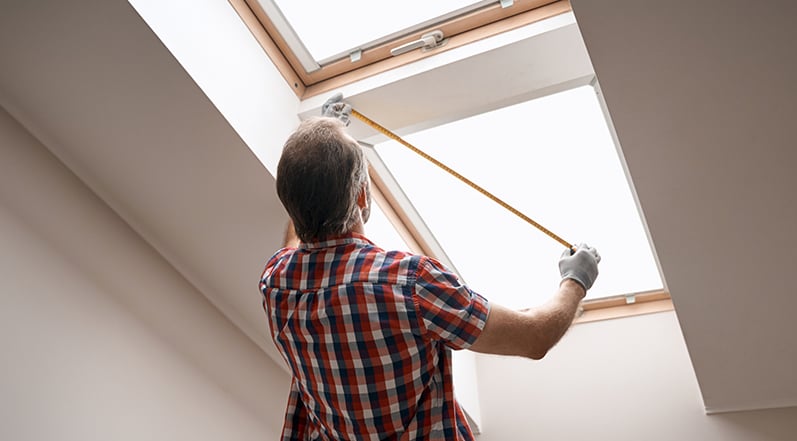
It’s ideal to install skylights when you’re installing your new roof rather than making the modification later on in order to protect your warranty.
Improperly Installed Solar Panels
Solar panels won’t normally void your roof warranty so long as they are properly installed. However, it’s essential that the installation follows the manufacturer’s guidelines.
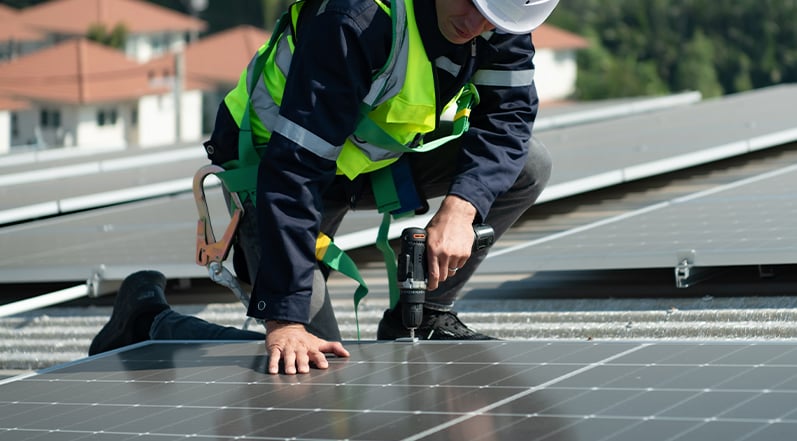
Additionally, any roofing elements that are added by the solar contractor you hire won’t be covered under your workmanship warranty– for example, if the solar company installs flashing, the roofing contractor’s warranty won’t cover it.
You might find that the best way to deal with this situation is to have your roofing company install any necessary flashing for the solar installation to ensure that any damage will be covered.
Failure to Register the Warranty
It’s possible that you don’t have any coverage if you didn’t submit your warranty registration to the manufacturer. For this reason, it’s important to register your warranty right away when you’re having roof work done.

If you have an extended warranty, you’ll find that the process is different. Since this type of warranty requires that certified contractors install the materials following the manufacturer’s specific guidelines, it also falls on their lap to register the warranty on your behalf. Because this is a more extensive warranty that offers more coverage, there is more to the process of registration than simply mailing in a form.
Pressure Washing
Algae streaks will likely start developing as your roof gets older. Some homeowners might not be particularly bothered by this, while others are motivated to try and return their roof to the way it looked when it was newly installed.
Cleaning your roof is the only thing you can do about these algae streaks, and many homeowners assume that the best way to wash their roof is to pressure wash it.
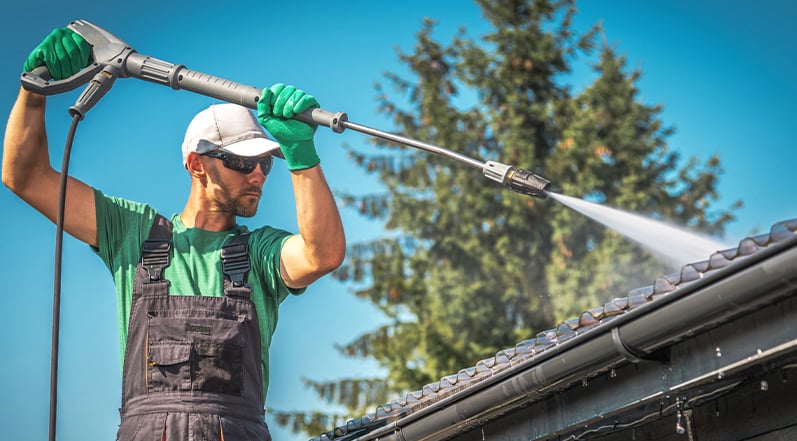
In reality, though, pressure washing your roof can remove the protective granules off of your shingles and void your warranties– both the manufacturer’s warranty and the workmanship warranty.
When the protective granules are removed from your shingles, it will decrease the lifespan of the roof. You can learn more about the proper way to wash your roof in our guide to roof cleaning.
Layering a New Roof Over an Old One
There are a lot of different components to a reroofing project that adds up to make it a pricey investment– one of which is removing and disposing of your old roof before putting a new one on. For this reason, people will sometimes layer new shingles on top of the old shingles.
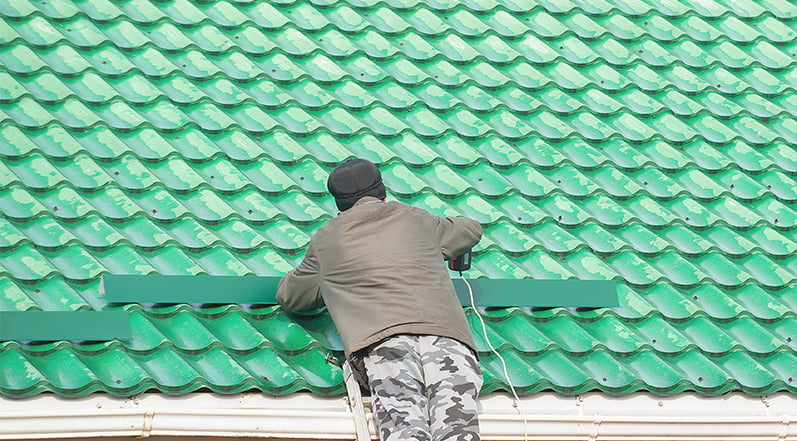
While this might seem like a great way to save a little money, it can end up voiding your manufacturer’s warranty. This is because shingles layered on top of existing shingles will fail faster and won’t lay as intended. The additional weight can also put extra strain on your joists and sheathing.
DIY Roof Work
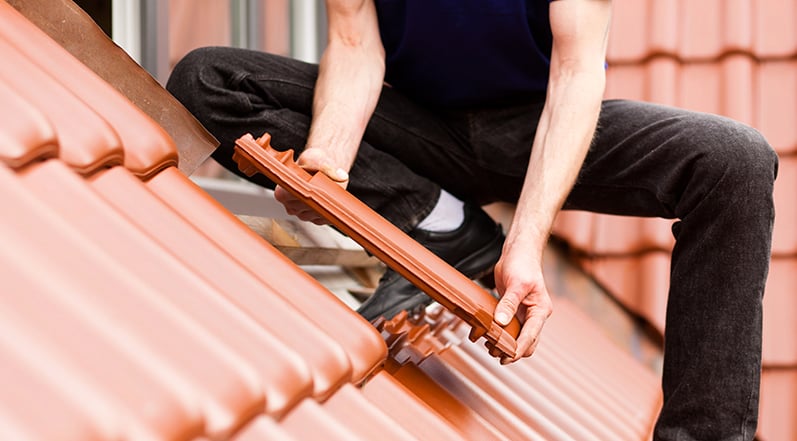
Taking on home repair projects on your own can be a great way to exercise your skills and save some money, but doing your own roof repairs (or hiring an unprofessional contractor) can lead to voiding both of your roof warranties.
How to Avoid Voiding Your Roof Warranties
Few things are more frustrating than submitting a claim only to find that your warranty is completely void. Unfortunately, this is all too common. Here are some of the things to help you protect your warranty and ensure that you will have coverage when you need it.
Register Your Warranty
As mentioned above, failing to register a manufacturer’s warranty can mean that you never receive the coverage you expect.

If you’ve purchased an extended warranty, however, you won’t usually have to worry about registering it because this is usually the responsibility of the certified contractor hired to install the product based on the manufacturer’s instructions.
Get Regular Inspections
Another important step to ensure that you maintain your warranty coverage is to get your roof inspected every one to two years. This allows your contractor to watch out for any potential shingles, vents, flashing, caulking, and more issues.
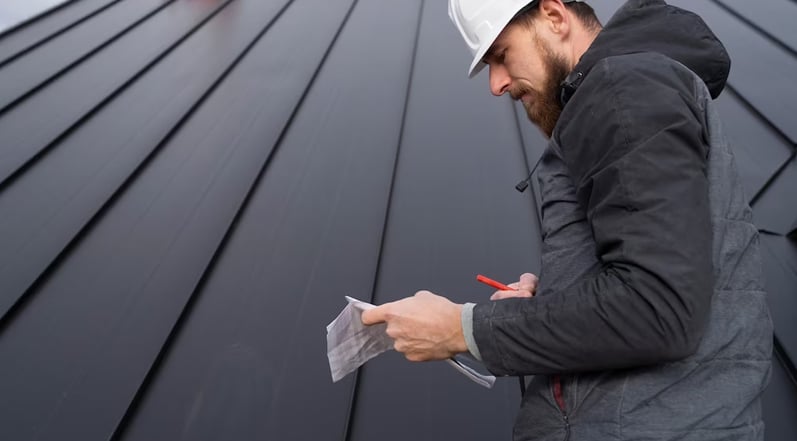
Not only will this help you keep your warranty intact, but it will also allow you to stay on top of repairs when they are only minor and before they become big, expensive jobs.
Stick With the Same Contractor
When it comes to your workmanship warranty, you’ll likely find language in the contract that voids it if you hire a different company to make alterations to the initial installation. It’s best to stick with the same contractor to ensure that your workmanship warranty stays intact. Of course, this is all the more reason to hire a great contractor in the first place, as it’s best to continue working with the same company over the lifespan of the roof.
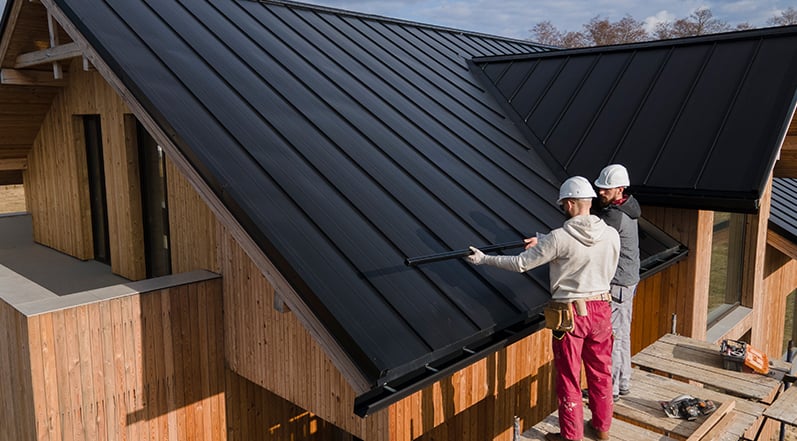
Are you wondering where you can find reputable and trustworthy roofing contractors in the Atlanta area? Check out our list of the best roofing contractors in Atlanta to help you find a company you’ll be happy to work with for years to come.
Read All of the Fine Print
When it comes to both your material’s warranty and your workmanship warranty, it’s always important to read the fine print. Companies are going to be motivated to limit their liability, and there are going to be a lot of little details that are important for understanding the limitations and exceptions of your warranty as well as factors that will void it completely.

To make sure you hire the right roofing company the first time around, take a look at our list of the top fifty questions to ask before hiring a roofer.
Does Your Roof Need Some Work?
Whether you’re looking for a full roof replacement or some minor repairs, Colony Roofers is ready and willing to help. As the premier roofing contractor in the greater Atlanta area, we specialize in offering the highest quality workmanship for the most affordable prices. We are always available to answer any questions you might have about manufacturer and workmanship warranties, as our world-class customer service team is dedicated to ensuring that you have the best possible experience working with us.
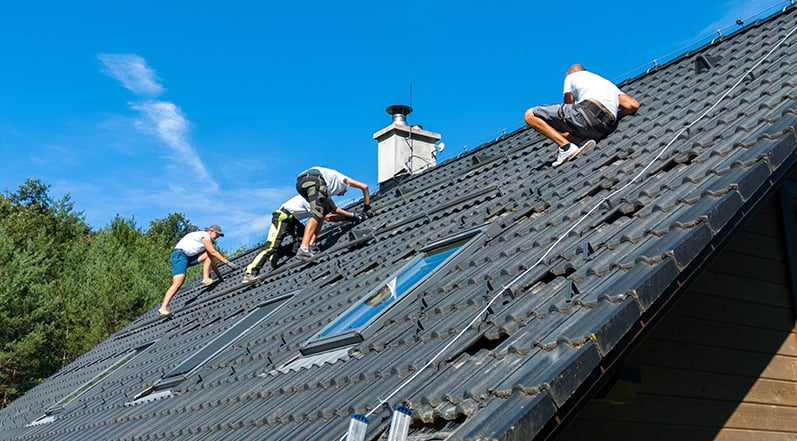
Is it time to get some work done on your roof? If so, contact us today for a free estimate.
 Call (678) 365-3138
Call (678) 365-3138

